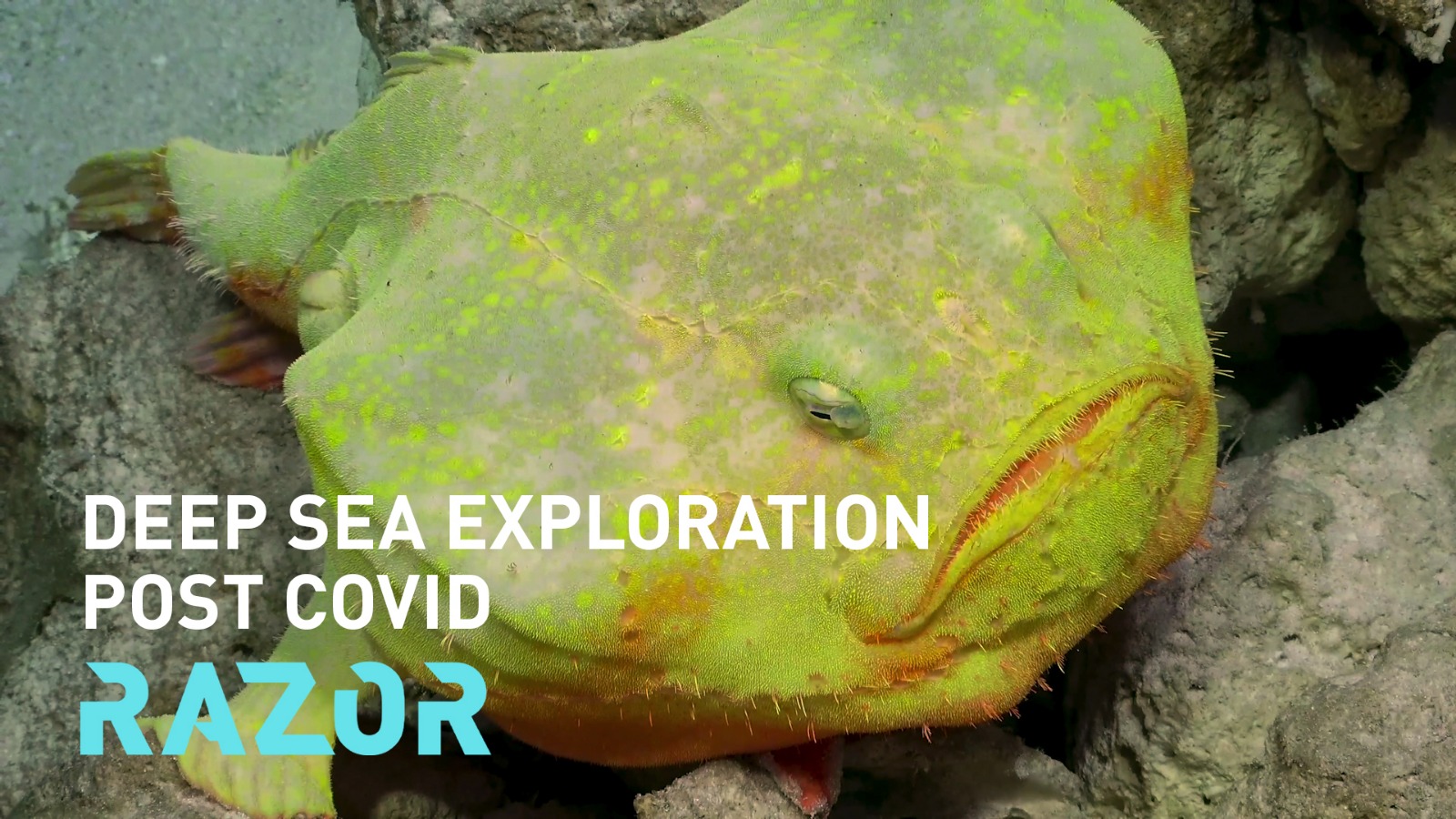30:10

In RAZOR this week, the team discovers how deep sea exploration is continuing despite the coronavirus pandemic.
Since the COVID-19 outbreak, the focus of scientific research for many scientists across the world has shifted. The Nippon Foundation-Gebco Seabed 2030 Project has been determined to continue mapping the world's seafloors throughout these unprecedented times.
Robin Beaman, a scientist at James Cook University who is working on the project with his team, says that while the surface of Mars and the moon have been 100 percent mapped by satellites, only 20 percent of our seabeds have been surveyed.
But how exactly is a globally-scattered team of scientists working on this project during the coronavirus pandemic?
The voyage was due to set off just as the COVID-19 restrictions came into place – which meant the scientists who would normally be on board had to come up with a remote system.
"We had to figure a way to manage from shore and be an integral part of a research expedition with no scientists on board," says Beaman.
"We had the technical challenges of being able to communicate with the ship, we also had software that allowed us to look at monitors on board the ship, so I guess we could actually see what was being collected in real time."

Nearly a fifth of the world's ocean floor has now been mapped. /Nippon Foundation-Gebco Seabed 2030/CGTN
Nearly a fifth of the world's ocean floor has now been mapped. /Nippon Foundation-Gebco Seabed 2030/CGTN
The team of scientists map the floor using a technique called multibeam sonar which sends out sound pulses. These 'pings' bounce off the seafloor and return to the ship. The system calculates the time that it takes for each pulse to return and that data is transformed into a 3D image.
In addition to this, the scientists also use a remotely operated vehicle known as 'Subastian'. It has 10 cameras attached to it, which allows a 360-degree picture of the ocean to be captured, creating a very realistic feeling on what it is like to be down there on the ocean floor.
"There was this constant surprise – I would have just enough time to rush and grab a cup of tea, come back, and there would be something amazing drifting in to view," says Beaman.
He also says it is important to map the world's oceans because seven-tenths of the globe is under water.
"Straight away, we can contribute 35,000 kilometers of brand new seafloor mapping data to that global effort."
Beaman believes it is important for him and his team to map the deeper parts of the Coral Sea Marine Park because, as he puts it, they are the 'custodians' for that part of the world.
Moving into deeper waters, this RAZOR episode also covers scientists being worried about coronavirus efforts being undone, mixed messages on coronavirus restrictions from politicians in the UK, plus the recent spike in U.S. COVID-19 cases.
Read more: RAZOR: Dumbo octopus and coffin fish – deep reef study continues post-COVID